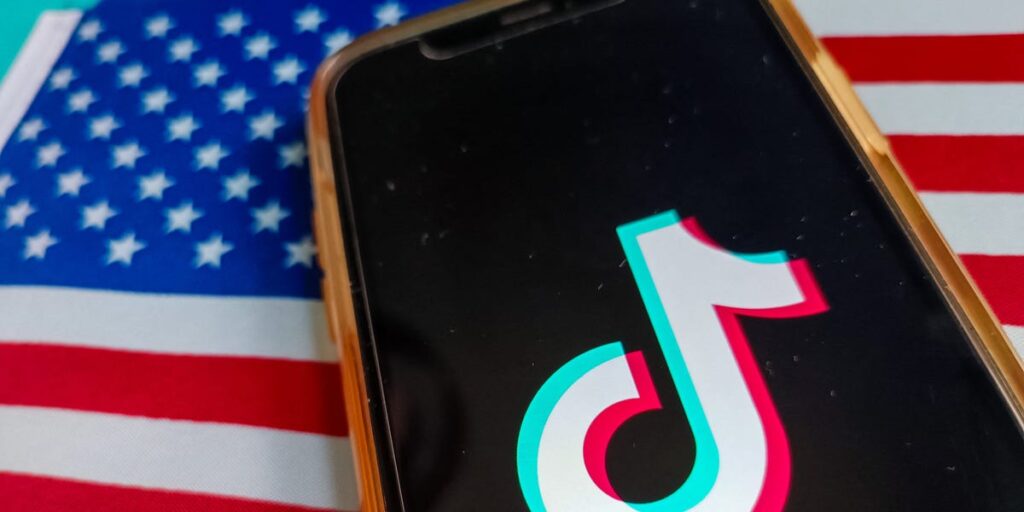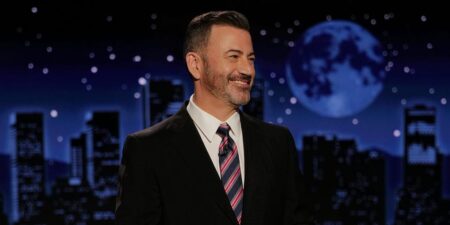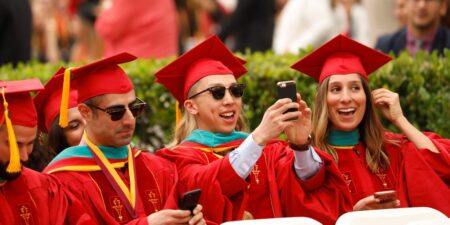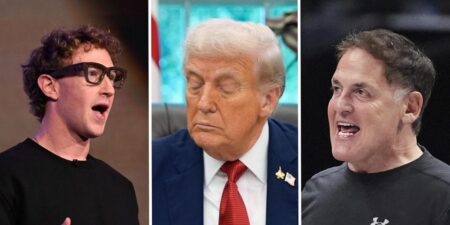Good morning to everyone except the European Ryder Cup team! The biennial (that means every two years) golf tournament between the US and Europe tees off this morning right in NYC’s backyard on Long Island. BI’s Alice Tecotzky will be our boots on the ground today, so if you’ll be at Bethpage, drop her a line.
In other news, Amazon reached a record $2.5 billion settlement with the FTC to resolve a case over its Prime subscription practices, which were first reported on by Business Insider back in 2022.
In today’s big story, President Donald Trump approved a TikTok deal, but there are still plenty of unanswered questions.
What’s on deck:
Markets: A quantum leap in trading just took place.
Tech: The vibes on vibe coding are not great.
Business: Starbucks’ CEO Brian Niccol is taking a page from his old playbook to overhaul the coffee giant.
But first, TikTok’s no longer on the clock.
If this was forwarded to you, sign up here.
The big story
TikTok (America’s version)
We’ve finally got a TikTok deal. The specifics of it are another question.
President Donald Trump signed an executive order blessing TikTok’s sale for roughly $14 billion, writes BI’s Dan Whateley. The deal ends the threat of the divest-or-ban law hanging over the app’s head since the beginning of the year.
TikTok’s new US era doesn’t mean the questions surrounding its future will stop. In fact, Trump’s executive order led to many more questions.
One big one is who exactly is getting TikTok. While it will be a consortium of investors, the exact makeup of the group wasn’t disclosed. Trump said “four or five world-class investors” are involved, including Michael Dell, Rupert Murdoch, and Larry Ellison.
Oracle will also audit TikTok’s all-important algorithm, according to an earlier statement from White House spokesperson Karoline Leavitt.
“What this deal ensures is that the American entity, the American investors, will actually control the algorithm,” Vice President JD Vance said.
Theoretically, TikTok users shouldn’t expect any initial significant changes to their app.
After all, the whole point of the deal was to keep things running smoothly, albeit in US control.
But down the road, all bets are off. Here are three big questions that remain:
What’s going to happen to the algorithm? The app’s powerful algorithm is the most valuable piece of TikTok and was a key factor in the divest-or-ban law. But with TikTok’s split from parent company ByteDance, it’s not entirely clear what the impact will be. Leavitt previously said the algorithm will be “retrained.” Could users experience a downgrade in performance as a result?
It’s all happening as Instagram leans even harder into its short-form video.
How about that equity? Another complexity from the TikTok-ByteDance split is what happens to US employees’ equity in the latter. ByteDance valued itself at $330 billion in late August, according to one report. TikTok US, meanwhile, is being priced at around $14 billion for the deal, according to Vance.
One group that’s not worried about equity is the US government. Unlike other transactions it has been involved in, Uncle Sam won’t take a stake in TikTok. Instead, it expects to receive a fee for brokering the deal.
Where do things go on the business side? Following the announcement, some TikTok employees told BI they were concerned about whether their teams would be deprioritized or cut entirely.
One area to watch is TikTok’s e-commerce business, Shop. In recent years, TikTok has heavily invested in this area. However, things haven’t been going according to plan. Social shopping hasn’t been embraced by the US market like it has in Asia. Further complicating things is TikTok’s recent promotion of Chinese executives to lead the business, which could be called into question as it looks to distance the company from China.
3 things in markets
1. HSBC just achieved a major breakthrough in trading, and IBM played a key role. The bank successfully used IBM’s technology to deploy a quantum computing-enabled strategy in the bond market. It’s a sign of what the future of trading could look like by leveraging the cutting-edge tech.
2. There’s stagflationary risk on the horizon. Macro research firm TS Lombard pointed out four reasons why the US could be headed for a dreaded stagflation scenario. It compared today’s risks to the last stagflation crisis of the 1960s, when Fed policy missteps caused inflation to spike while economic growth stalled.
3. Qube is humanizing its quant hedge fund. The $34 billion firm is launching its first human fundamental analyst team on October 1, people close to the firm told BI. Under former Balyasny exec Stephen Irvine, each analyst will run a sleeve of capital between $200 million and $500 million.
3 things in tech
1. Silicon Valley’s defense of Trump’s new visa fee. While Trump’s $100,000 H-1B visa fee drew backlash from many in the tech industry, leaders like Netflix cofounder Reed Hastings and Nvidia CEO Jensen Huang are making the case for it. Here’s why.
2. There’s a new battle in the war between Elon Musk and Sam Altman. In its latest iteration, Elon Musk’s xAI has sued OpenAI, alleging that the company poached xAI staff to access trade secrets. An OpenAI spokesperson denied the allegations. “This new lawsuit is the latest chapter in Mr. Musk’s ongoing harassment,” the OpenAI spokesperson told BI.
3. Vibe coding isn’t dead, just … sleepy? New data from Barclays shows traffic on AI vibe coding sites, including favorites Lovable and Vercel’s v0, is down from a summer peak. That raises questions about whether vibe coding is dead or just in a lull as the hype burns off.
3 things in business
1. A farewell to Starbs. Layoffs and store closures are coming to Starbucks, which said it’s firing 900 non-retail employees and shuttering about 1% of its North American stores. That includes the iconic Capital Hill Roastery, which is just minutes from its Seattle headquarters. Here’s how CEO Brian Niccol is repeating his Chipotle strategy at the coffee giant.
2. Another W for Costco. The wholesaler beat expectations with full-year revenue growth of 8.1%. Its bet on extended hours for executive members is paying off — CEO Ron Vachris said those hours have added an estimated 1% to weekly sales.
3. Hustling from MTV to the trading floor. Kim Stolz started out on “America’s Next Top Model” before her career at MTV. Today, she advises ultrawealthy clients at Bank of America Private Bank. Stolz shared with BI how she knocked on doors to land her first gig on Wall Street.
In other news
The former Netflix exec who oversaw ‘Stranger Things’ and ‘Bridgerton’ is becoming Amazon’s new TV head. Read the memo.
Uber is making new moves in the race to deliver fresh groceries fast.
Cisco exec says the slowdown in entry-level hiring is a ‘total blip’ and won’t last.
JPMorgan flags 3 stocks with the ingredients for a short squeeze.
Miami tops UBS’ list of global cities at risk of a real estate bubble. Here’s how other major US markets stack up.
What’s happening today
- New York Film Festival begins.
- NATO military committee conference opens in Riga, Latvia.
Dan DeFrancesco, deputy executive editor and anchor, in New York. Meghan Morris, bureau chief, in Singapore. Akin Oyedele, deputy editor, in New York. Grace Lett, editor, in New York. Amanda Yen, associate editor, in New York.
Read the full article here
















